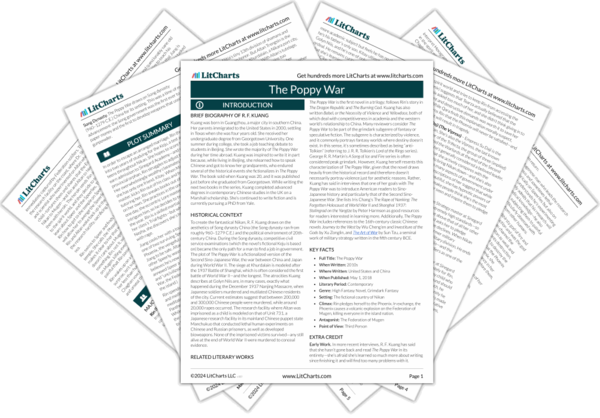Understanding Altan’s childhood trauma helps Rin develop empathy for him, and particularly for his drug use. Opium, she sees now, can help a person reach the gods—or it can just provide a much needed break from one’s pain and suffering. Notably, Rin understands that what Altan plans to do is a bad idea. On some level, she realizes that Jiang—
not Altan—has the right idea about how one should engage with the gods (with immense caution). And yet, her loyalty to Altan, and all the horrors she’s seen, has led her to conclude that it can’t possibly get any worse, so why not do it anyway?
